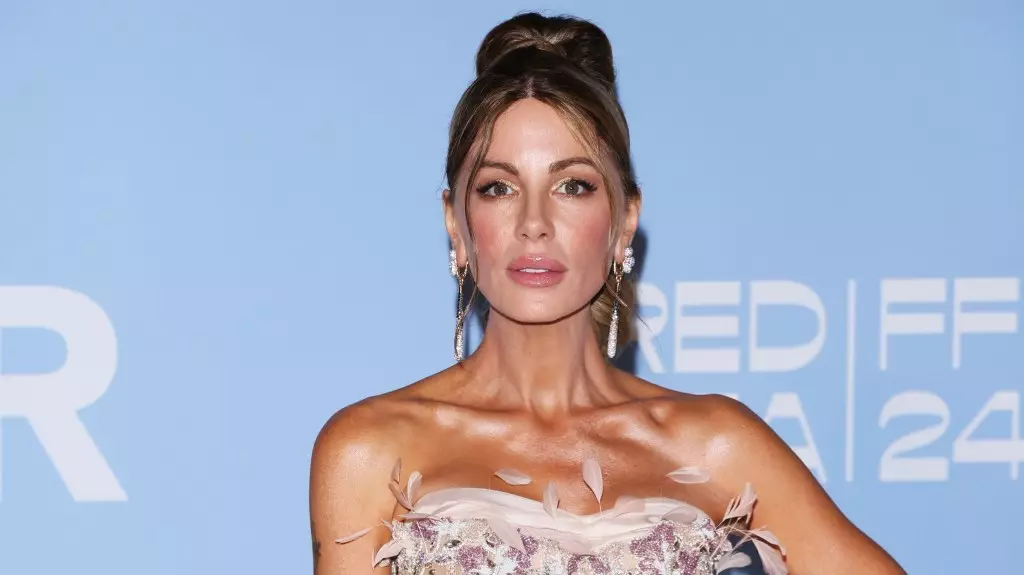In a powerful Instagram video, actress Kate Beckinsale drew back the curtain on the pervasive issue of sexism within the Hollywood film industry, revealing painful personal experiences as well as broader systemic problems. Her remarks come in response to the recent controversy surrounding actors Blake Lively and Justin Baldoni, which has reignited essential dialogues about misogyny and the need for change in an industry long infamous for its treatment of women. Beckinsale’s candid account serves as a wakeup call, forcing both the industry and the public to confront the dark underbelly of entertainment.
Beckinsale emphasizes her lack of personal connection to Lively or Baldoni but makes it clear that their situation reflects a troubling pattern of behavior when women summon the courage to speak out against harassment or assault. Her insistence on sharing her own narrative is an act of solidarity with others who have faced similar trials. Importantly, she addresses the cultural machinery that operates to discredit and silence women. Beckinsale’s experiences, including being disrespected by female colleagues when she dared to report misconduct, illustrate the internalized misogyny that often pits women against one another, perpetuating a cycle of silence.
The actress recounts harrowing experiences that point to how far removed the industry can be from fostering safe, healthy work environments. Beckinsale details being forced into a photoshoot by a publicist just one day after a miscarriage, an act that highlights the relentless pressure women face to meet industry standards of beauty and readiness despite personal tragedies. Her experiences with demeaning male co-stars, including being verbally attacked after calling out their alcohol abuse, paint a stark picture of a persistent toxic work culture.
Further compounding the harassment, Beckinsale describes physical tolls she suffered, such as extreme dieting that led to losing her menstrual cycle. Such accounts reveal an industry that prioritizes appearance over health, fostering an environment wherein women’s bodies are often scrutinized and objectified.
Beckinsale’s commentary extends beyond emotional hardships to encompass physical dangers on set. She recalls situations where unsafe practices during stunt work led to injuries that required medical imaging, emphasizing that the thrill of violence is sometimes prioritized over safety in male-dominated settings. Remarkably, she remains sympathetic to the struggles of her male co-stars, even as she points out how their struggles can manifest in reckless behaviors that endanger female counterparts.
The mental toll of these experiences is further compounded by what Beckinsale describes as gaslighting—a tactic employed against her when she voiced concerns about her treatment or safety. The isolation she faced as a consequence of speaking up exemplifies the culture of fear that many women in Hollywood grapple with daily. From being ostracized during cast meals to feeling emotionally abandoned, the mental health implications of such a work environment cannot be underestimated.
Undeniably, Beckinsale’s experiences echo larger patterns within Hollywood, with many women continuing to grapple with harassment and underappreciation. Although she expresses gratitude for not having been sexually assaulted by influential figures like Harvey Weinstein, the fear of professional retaliation looms large. Beckinsale alleges that her rejection of a role led to blacklisting by powerful industry players, illustrating the precarious balance women must walk when considering their careers against potential repercussions.
As Beckinsale points out, it is disheartening to hear men claim that the climate in Hollywood has improved. It has not. Her closing words serve as a stark reminder that the fight against systemic sexism is far from over. Women like Beckinsale are indispensable voices in advocating not only for themselves but for future generations of women who aspire to work in the industry. Her testimony is a clarion call for transformation—a persistent plea for accountability, respect, and equality in a world that must do better. As discussions surrounding misogyny in Hollywood continue, it becomes crucial for audiences to listen and, importantly, act.

